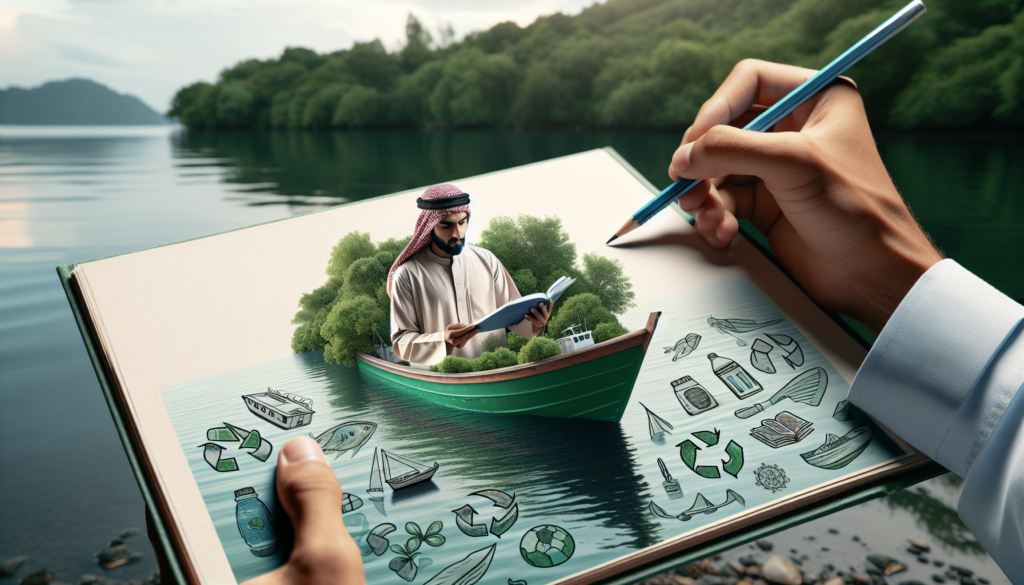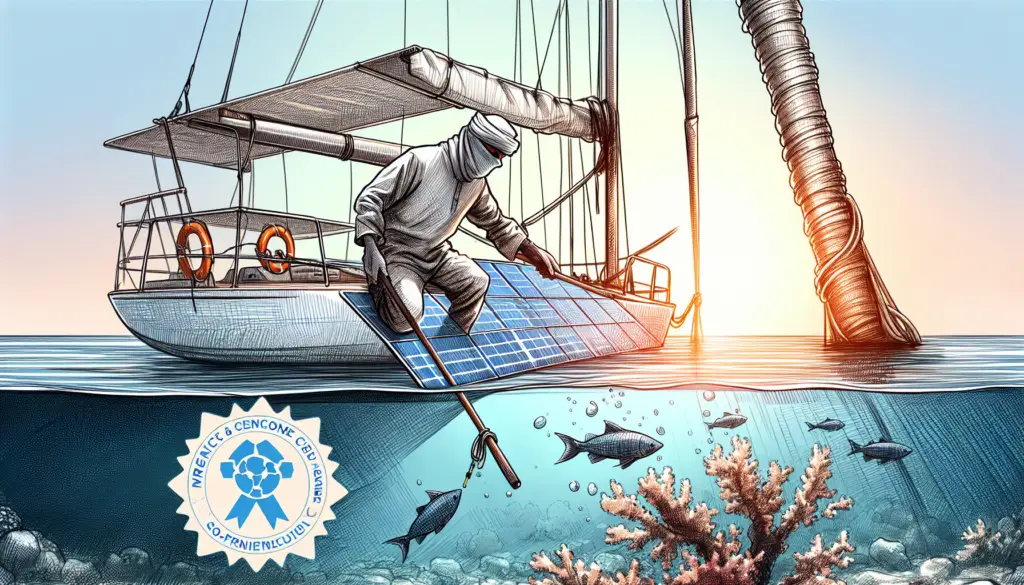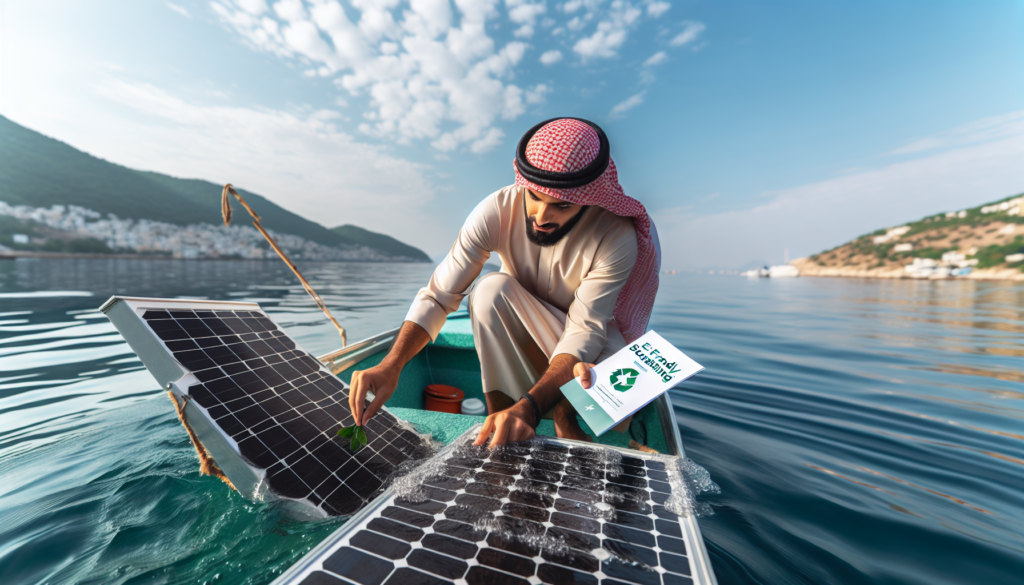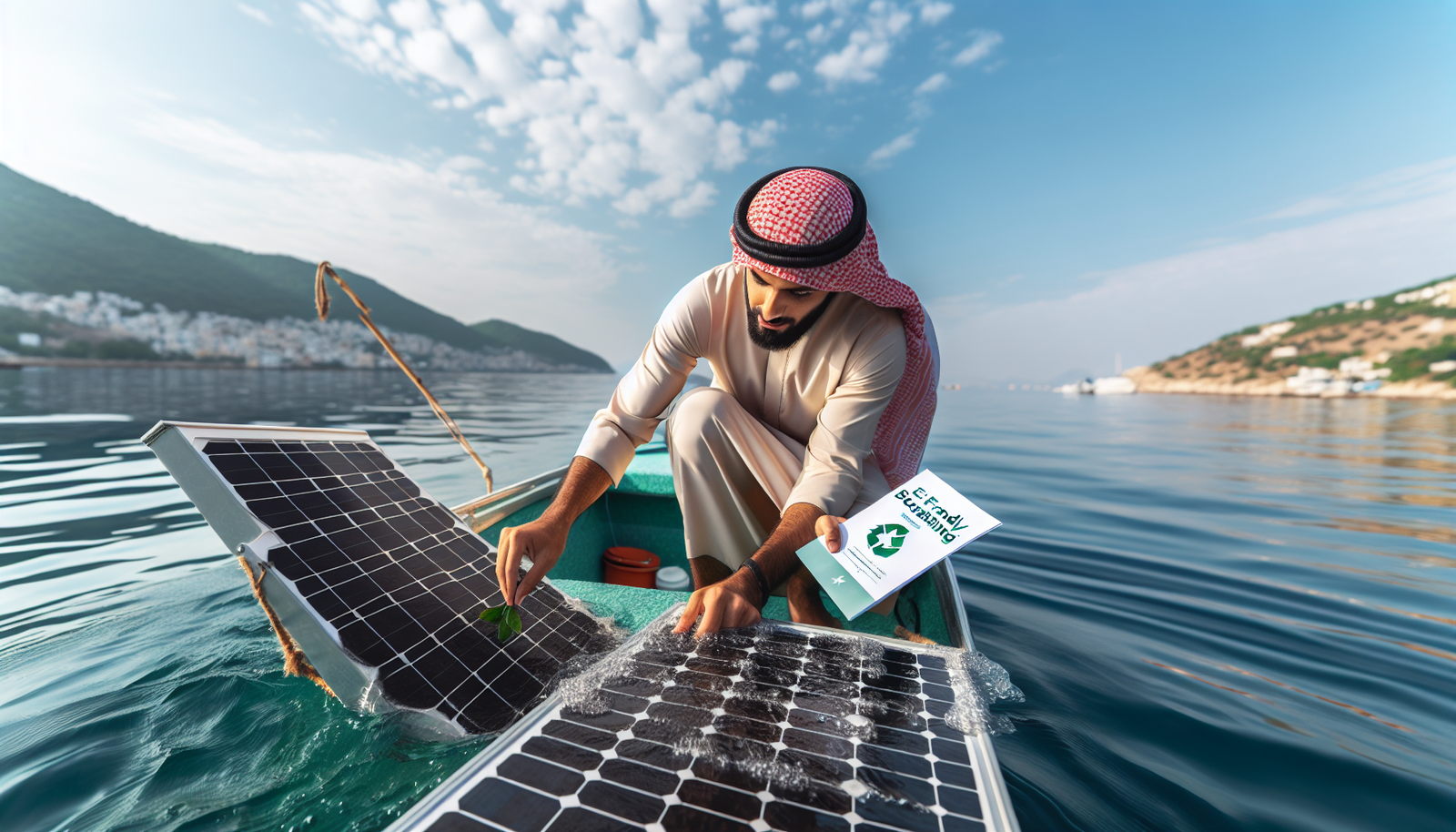Imagine being able to enjoy your favorite hobby, boating, but with a new twist. You’re not just a boat enthusiast now – you’re on your way to becoming a certified, eco-friendly boat expert. With eco-friendly boating education and certification programs, you’ll learn how to navigate the waters in a sustainable and responsible way, and in doing so, protect our marine ecosystems for future generations. Your love for the water doesn’t have to leave a mark; explore how you can be part of the solution rather than the problem.

Understanding Eco-Friendly Boating
What is Eco-Friendly Boating?
Eco-friendly boating involves the use of strategies, technologies, and practices that minimize harm to the marine environment. It’s where you employ sustainable habits while enjoying your boating activities, whether you’re sailing, fishing, or leisure cruising.
Importance of Eco-friendly boating
Eco-friendly boating is crucial for preserving our marine ecosystems. As a boat owner or operator, your actions can significantly influence the health of our seas, lakes, and rivers. Eco-friendly boating means less pollution, less harm to marine life, and better water quality for everyone to enjoy.
Difference between traditional boating and eco-friendly boating
Traditional boating can often contribute to water pollution and harm to aquatic life. In contrast, eco-friendly boating incorporates numerous practices that are designed to reduce environmental damage. These might include using less polluting fuels, adopting waste reduction strategies, or considering eco-friendly hull designs.
Components of Eco-Friendly Boating Education
Understanding local ecosystem
Eco-friendly boating education includes learning about your local ecosystems. You need to understand the specific flora and fauna in your area and how your boating activities might impact this environment.
Impacts of boating on the environment
Part of the education process involves understanding how boating affects the environment. This can range from oil and gas leaks polluting the water to noise and disturbances that can affect aquatic life.
Methods of reducing environmental impact
Eco-friendly boating education also explores ways to reduce these environmental impacts. This could involve utilizing more efficient engines, reducing speed in sensitive areas, or properly disposing of waste.

Established Eco-Friendly Boating Education Courses
Courses offered by environmental organizations
Many environmental organizations offer educational courses on eco-friendly boating. These courses cover a wide range of topics, emphasizing the importance of sustainable boating and practical steps boat owners can take.
Governmental environmental initiatives
Some government agencies also offer initiatives that promote eco-friendly boating. These can range from funding research into more sustainable boating technologies to actively implementing regulations that encourage eco-friendly practices.
Role of local communities
Local communities also play a crucial role in eco-friendly boating education. They are often the ones most directly affected by pollution or damage caused by boating activities. Thus, they have a vested interest in promoting sustainable practices.
Certification Programs in Eco-Friendly Boating
What are certification programs?
Certification programs are training courses that provide a formal recognition of competence in a specific field. In the context of eco-friendly boating, they offer boat owners and operators a way to demonstrate their commitment to sustainable boating practices.
Impact of certification on professional boating
Achieving certification in eco-friendly boating can significantly impact professional boating. It demonstrates to clients, colleagues, and the industry at large that you are committed to maintaining high environmental standards in your operations.
Available certification programs in eco-friendly boating
There are several certification programs available for eco-friendly boating. These programs cover various areas, from sustainable fuel usage to methods for reducing noise pollution.

Online Eco-Friendly Boating Education Programs
Benefits of online education programs
Online eco-friendly boating education programs offer many benefits. They provide flexibility and convenience, allowing you to learn at your own pace and in your own time. Plus, they reduce carbon footprint as physical travel is eliminated.
Popular online eco-friendly boating courses
There are various popular online courses that provide comprehensive information on eco-friendly boating. These courses are designed to equip you with the knowledge and skills needed to adopt sustainable boating practices effectively.
Online vs traditional classroom learning
While traditional classroom learning has its merits, online learning offers unique benefits for eco-friendly boating education. It provides an accessible platform for a wide audience, enabling more people to learn about and adopt sustainable boating practices.
Implementing Eco-Friendly Practices in boating
Adoption of cleaner fuels
Adopting cleaner fuels is one way of creating a more sustainable boating practice. Cleaner fuels like biofuel or electric power not only reduce air pollution but also decrease reliance on fossil fuels.
Reduction of plastic waste
Reducing plastic waste helps keep our waterways clean. You can avoid single-use plastics on the boat, opt for reusable items, and ensure proper waste disposal.
Recycling and disposal of waste
Proper waste management is essential for eco-friendly boating. It includes recycling where possible and ensuring waste is disposed of correctly to prevent it from entering waterways.

Examples of Eco-Friendly Boating Innovations
Solar-powered boats
Solar-powered boats utilize one of the most abundant resources—sunlight—to function, eliminating the need for fossil fuels. They represent a significant breakthrough in sustainable boating.
Electric motors in boating
The use of electric motors in boats is another burgeoning innovation. These motors drastically reduce emissions and noise, leading to a more sustainable boating experience.
Water and waste management systems in boats
New advances in water and waste management systems for boats help ensure that waste is treated and disposed of correctly. These systems can significantly reduce the environmental impact of boating.
Role of Boating Industries in Promoting Eco-Friendly Practices
Initiatives taken by boating industries
Boating industries play a pivotal role in promoting eco-friendly practices. From manufacturing electric and solar power boats to creating efficient waste management systems, the industry is continually developing sustainable solutions.
Partnerships with environmental organizations
By partnering with environmental organizations, boating industries can advance their eco-friendly agendas. These partnerships facilitate knowledge sharing and lead to more innovative and effective solutions for sustainable boating.
Future trends in eco-friendly boating
The trends suggest a promising future for eco-friendly boating. From the increased adoption of sustainable fuel sources to the use of modern technology to minimize waste, the industry is making consistent strides toward a more sustainable future.
Importance of Continuous Learning and Updates
Keeping up with technological advancements
With technologies continually changing, it is crucial to stay updated through continuous learning. Having the knowledge of the latest advancements can help you utilize resources efficiently and implement eco-friendly practices effectively.
Updates in eco-friendly regulations and standards
Regulations and standards can change, and staying abreast of these updates ensures compliance and keeps your practices in line with requirements.
Learning from global best practices
Borrowing from best practices globally aids in designing strategies that can effectively protect the marine environment. Seeing what works elsewhere can provide inspiration and practical solutions that can be adapted locally.
Future of Eco-Friendly Boating
Projecting trends in eco-friendly boating
The future of boating is undoubtedly greener. With numerous technologies in development, such as cleaner fuel sources and improved waste management systems, the eco-friendly boating movement is only growing.
Role of environmental regulations
Environmental regulations will continue to play a significant role in shaping the future of eco-friendly boating. They stimulate the industry to improve environmental standards and drive innovation.
Potential impact on boating industry
The shift towards eco-friendly boating holds a promise for a sustainable boating industry. As boaters and companies increasingly adopt eco-friendly practices, the industry can look forward to cleaner waterways, more vibrant marine life, and healthier ecosystems.


[…] filled waters, you’re now part of an exciting journey towards conservation with “eco-friendly boating advocacy and activism“. As a passionate boater or an aspiring one, your involvement can significantly impact the […]
[…] to navigate a wave of exciting and indispensable knowledge about Eco-Friendly Boating Education and Certification Programs. As a passionate boater, it’s time you embrace the responsibility to protect our priceless […]